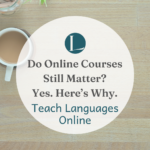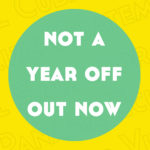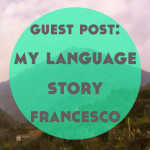June 3rd, 2020
Let’s Talk About Racism.
Hey.
So I’m a white girl who grew up in a predominantly white town in the middle of England. How does yet another a black man being killed at the hands of yet another white police officer in the USA affect my life? Why am I feeling compelled to write this right now?
Here’s why.
It is not the job of black people to educate everyone else about the reality of being black in the world in which we live.
It is not the job of black people to educate everyone else about the brutal histories that black people have endured.
It is not the job of black people, and black people only, to stand up for their rights, rights that I, as a white woman, often enjoy freely and without consideration.
Why are there black people in the USA and across the Americas?
Because British people played a disgustingly huge role in the Atlantic slave trade.
I am a British person.
Yes, I was not there when my ancestors created the Atlantic slave trade.
But neither were today’s black people when their ancestors had that slave trade forced upon them.
Yet every single day they have to live with the lasting systematic racism that slavery left. What an intensely dark shadow.
I should not, and cannot, ignore that.
This is not just “black people’s problem”.
This is everyone’s problem.
And yes, I realise that the conversation right now may seem America-centric.
But let this be a moment in which we can all stop to question, to pivot, and to create lasting change globally.
Black Lives Matter here in the UK as well.
We have similarly disturbing patterns in our history to fob this off as “America’s problem”.
Windrush.
Stephen Lawrence.
The treatment of Diane Abbott in the media.
The treatment of Meghan Markle vs Kate Middleton by the media.
Oh, and that little thing we called “Empire”.
I could go on.
If you think this doesn’t affect you because you’re in the UK, it does.
And, of course, beyond the US, beyond the UK, it may not appear to affect you either at first glance.
In other parts of the world, black people are a majority.
In other parts of the world, white people are a minority.
In other parts of the world, there may be no black people or white people.
So it’s not the same, right? No. The origins and the people may be different but the racism still exists.
Indigenous communities.
Refugees.
Immigrants.
To name just three broad groups whose definitions differ across the world.
If you think this doesn’t affect you because you’re elsewhere, it does.
Naturally, as one person who has mostly spent her life in one country, I cannot provide information relevant to everyone everywhere.
But today, I encourage us all to do better.
I’m not going to ask you to donate. If you want to do that and you can, you will.
However, I’m very aware that for many people, that is simply not an option. I understand.
So, instead, I encourage us all to learn more about lives of people different from our own.
Read about their histories.
Listen to their stories.
Watch films, TV, and documentaries about their lives.
Sign petitions in their interests.
Follow their social media.
These are small acts. But they are acts.
When it feels like we are individually too small to make a difference, we have to start with small acts.
Action beats inaction here.
Let’s make an active decision to better curate and diversify what we consume.
I truly believe that big change comes from “starting at home”, as it were.
Making these seemingly small individual changes can help enable us with the knowledge and drive to take further action locally, nationally, and internationally.
I’m not going to tell you what to read/watch/listen to.
I trust that as independent language learners and teachers, you’re confident enough to use the internet to do that yourself.
And speaking of language learning…maybe you’re wondering why I’m writing this…on a blog about language learning.
What does this have to do with languages?
Everything.
Language is people.
Representation matters.
Don’t just listen to my voice when it comes to language learning.
I’m one person. With one experience. One white experience.
The table is endless. There’s enough space for everyone to have a seat at it.
I posted on Instagram yesterday asking people to share their favourite black language learners, black language teachers, and black-owned language businesses in the comments.
At the time of writing this, there are no suggestions.
Yet, I know black language learners and teachers are here.
Watching videos.
Making videos.
Listening to podcasts.
Making podcasts.
Writing blogs.
Reading blogs.
Learning languages.
Teaching languages.
Loving languages.
Beyond taking wider action, when it comes to our little corner of the internet, I encourage you to dig in and discover more black voices.
Here is just a small selection to start what I hope will become a much longer list of black people I admire who love languages.
Learn Spanish Con Salsa – I started working with Tamara Marie years ago now on the Online Teaching Starter Kit and she is doing such good work. If you’re learning Spanish and you like to move your hips, check her out.
Black Girls Learn Languages – Shahidah always brings her absolute A-game when it comes to Women In Language! Her website showcases the phenomenal variety of black women who use and know languages in various fields. She also hosted the first Sisters Only Language Summit for black women back in April (why did I not find out about this sooner?!) and replay tickets are still available if you’d like to show your support for the event.
Languages Through Music – Can’t believe I haven’t discovered Desta’s work until now! One of my favourite things here is the Languages Through Music Instagram Challenge, which you can check out here.
Discovering Language – I first met LeDonna years ago…I think in Berlin at the Polyglot Gathering and then a few months later again at LangFest in Montreal…I think. I forget exactly where, but I do remember being in awe at LeDonna’s Korean skills. I’m excited to see she’s just started a podcast AND that her first episode is about Quechua! Ooo!
Khady Ndoye – I adore Khady. We’ve met at the Polyglot Gathering in Berlin and other events and she’s also been a speaker at Women in Language. She helped me make the 9 Reasons to Learn Wolof video too.
Young Black Bilinguals – an Instagram account I discovered recently showcasing…well, what it says on the tin really, young black bilinguals (and multilinguals too!)
Bilingue Blogs – I’ve just discovered Rickie and am very excited by his YouTube channel…mainly because one of the first videos I saw there was how to trill you R in Spanish. 15+ years. Still a problem for me.
Like I said, this is just a small selection, and by no means extensive.
(And yes, before you hit reply, I’m aware it’s predominantly female. I organise an event called Women In Language. What can I say? I spent my year looking for female voices in language.)
It is a heavy burden to bear to be “the” black speaker at a language event or “the” black language learner. This should not be the case.
If you follow anyone above after reading this, don’t just follow and do nothing more. Continue to engage.
We can all do more to find, share, and amplify diversity within our language learning community.
Thank you for reading this.
I know you care about this as much as I do.
Now is the time for us all to show that, and to continue showing that as we move forward.






